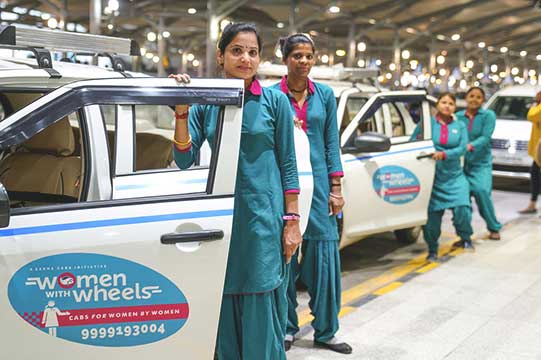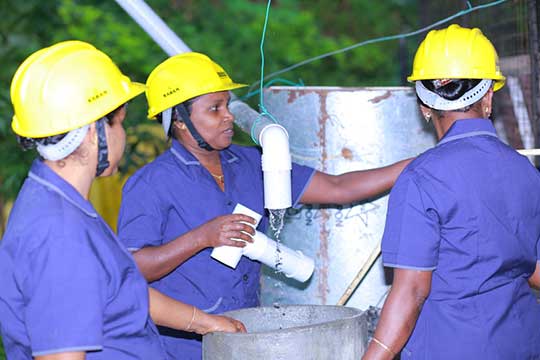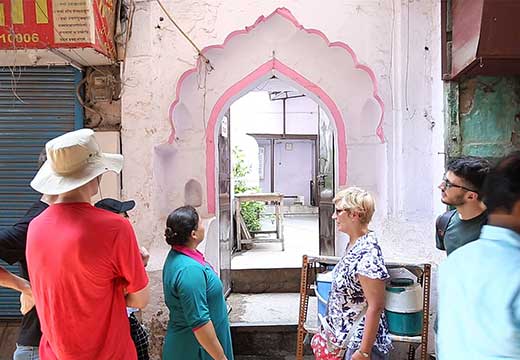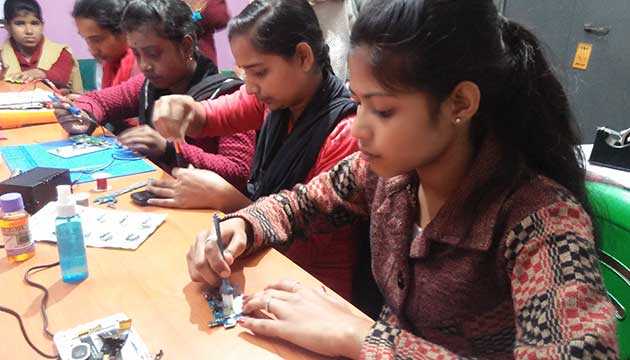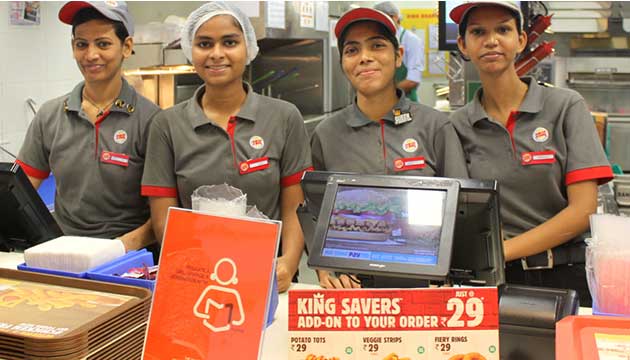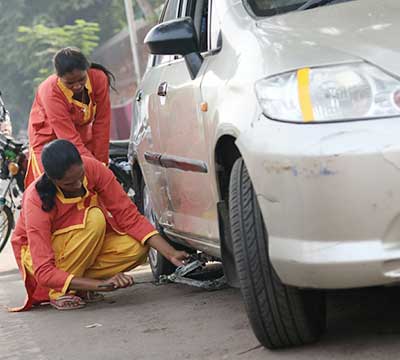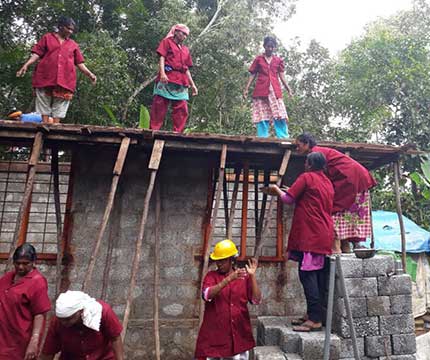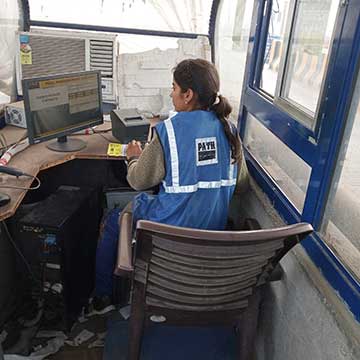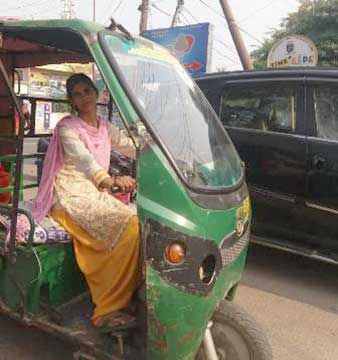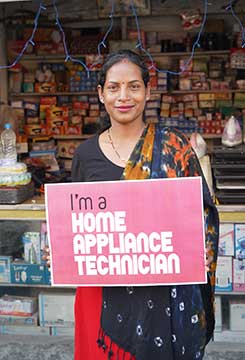The Non-Traditional Livelihoods Network (NTLN) is a collaboration of 44 members who advocate for increasing women’s workforce participation especially in occupations/ trades which have been traditionally closed to them.
The network was set up in 2016 and envisions as its cornerstone the disruption of the gendered division of labour that constraints women to occupy only defined ‘feminised’ spaces, which are low-skilled and low paid jobs. It aims at breaking the occupational segregation across intersections of gender, caste, class that limit the scope of economic activities for marginalized.
The network believes that one of the ways to break the vicious cycle of denial of women’s rights is creating training and development opportunities for resource poor and marginalised women in non-traditional skills that are remunerative like driving, carpentry, plumbing etc, increasing their access to decent jobs and advocating for creation of ecosystems of change at home, in workspaces and the market.
Non-Traditional Livelihoods are defined as “livelihood practices that help women break stereotypes emerging from the intersections of gender, caste, class, religion, sexual orientation, disabilities and other marginalities and oppressive structures, within a dynamic context of space and time. Non-traditional livelihoods increase the set of viable livelihood choices available to women and give them access and control over skills, technology, market, mobility and resources. They create economic stability along with psychological, social and political empowerment. Some examples of the same include training women to become drivers, masons, electricians, etc.” (NTLN Charter, 2017)
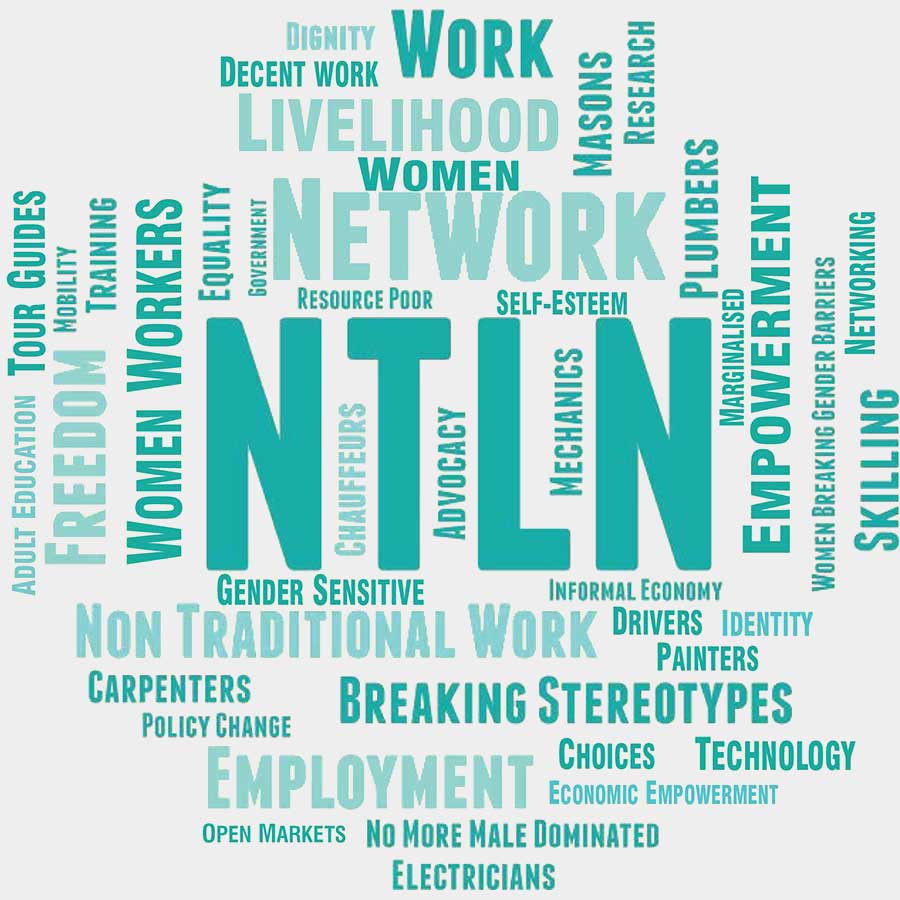
Our Values
Personal, Social and Professional
Empowerment focused, Non- Binary
Collaborative space to reflect on failures as well
GENESIS
Declining trends of women’s participation in the labour force due to several social, economic and political factors (Women’s labour force participation was 17.5% as per SDG India Index 2019) have been a matter of serious concern for women’s organisations and the civil society over the past decade.
Systemic exclusion of women from higher education (Unpaid care work restricts participation in education- 65% of girls (15-18 years) drop out of school due to responsibility for household chores (National Commission for Protection of Child Rights), vocational training, social restrictions on mobility, violence (2.5 million crimes against women reported in India (NCRB, 2017), unpaid care (Women in India contribute to unpaid care work equal to 3.1% of the GDP ILO 2018) and domestic work burden, along with gender segregation at work limit women to informal, contractual, low-skilled and low paid jobs (92% Women are in low paid jobs-Global Wage Report, 2018).
The Non-Traditional Livelihood Network came together as a group of organisations who challenge the gendered segregation of work and advocate for gender-just training, transformative skills and structures that facilitate women’s entry in remunerative livelihoods with dignity and sustenance in the workforce. It was seeded by Azad Foundation. The key milestones that led to the fomalisation of the network in 2017 are as follows:
2014
Desk review to identify various initiatives engaged in providing non-traditional livelihoods for women across India. Available as a directory here.
2015
Learning journey’s to five states of India (Uttar Pradesh, Gujarat, Maharashtra, Kerala and Tamil Nadu), to network and engage with 18 selected organisations and initiatives working on non-traditional livelihoods of women. These interactions helped create interest in the NTLN with some organisations joining as members.
2016
Brainstorming and networking meetings that enabled focused discussion on the concept of non-traditional livelihoods for women, structuring and setting up the Non-Traditional Livelihoods Network (NTLN).
2017
Formalisation of the NTL network, committed to visibilising and mainstreaming non-traditional livelihoods of resource poor women, as a gender equality and development agenda. Adoption of a Charter defining non-traditional livelihoods of women.
To read further, please download the Genesis Document
WHAT WE DO
The network works at the intersection of gender-livelihood skills and see’s its role in mainstreaming non-traditional occupations for women in the larger debate and action around women’s work and labour participation.
It aims to challenge the beliefs, practices and policies that contribute to the exclusion of women from traditionally male-dominated livelihoods due to gender-biased social norms, lack of knowledge and skills.
Objectives
- To work towards building a collective for projecting and giving visibility to the need of mainstreaming NTL for women within the policy discourse of government and non-government sectors.
- To advocate for enabling social structures and infrastructure which facilitate women’s participation and retention in Non-Traditional Livelihoods.
- To create a body of knowledge on new avenues of NTL for women and strategies to access them.
- To share challenges and learnings of organisations on Non-Traditional Livelihoods for women.
- To identify areas of collaboration, capacity building and build synergies in promoting NTL for women, including engagement/ advocacy with the state and other stakeholders.
Strategies
- Capacity building of member organisations to mobilise, educate, skill and create market linkages for women to take up non-traditional livelihoods and enlist customer acceptance of women offering NTL goods and services.
- Create and share knowledge through evidence based research on women and work, especially non-traditional livelihoods.
- Policy advocacy with government, corporate/ industry, civil society and donor organisations, at the local, national and international level. Three core agendas adopted by the network currently include:
- Creating Gender Sensitive Markets
- Training and Education on Non-Traditional Livelihoods
- Unpaid Care Work
- Documentation and communication with the perspective of showcasing women who have broken gender barriers and made employment choices that were previously male dominated.
STRUCTURE AND MEMBERSHIP
The network includes 31 Indian organisations and 13 individual members, with a six-member Steering Group to guide its agenda. The secretariat of the Non-Traditional Livelihoods Network (NTLN) is currently hosted by the Azad Foundation, with Dolon Ganguly as the coordinator.
Do write to us if you wish to join the network.

